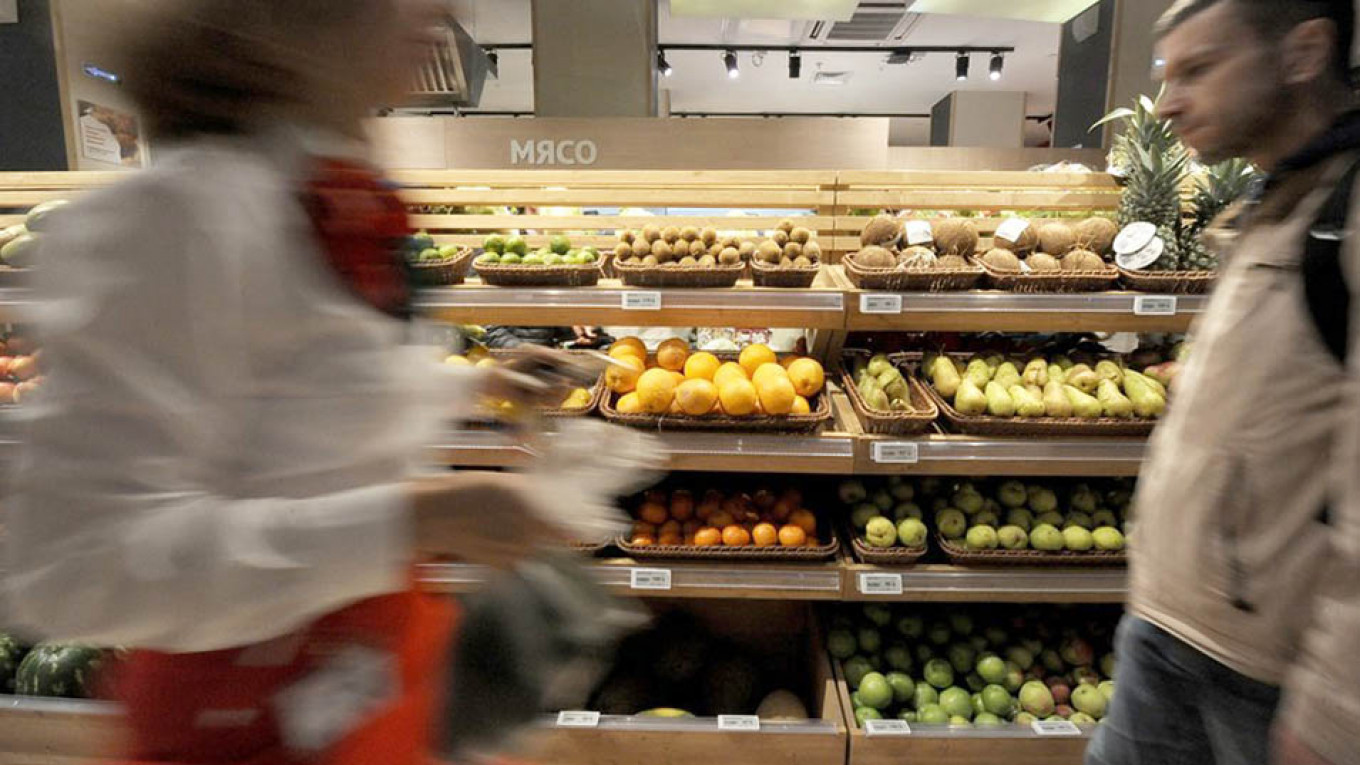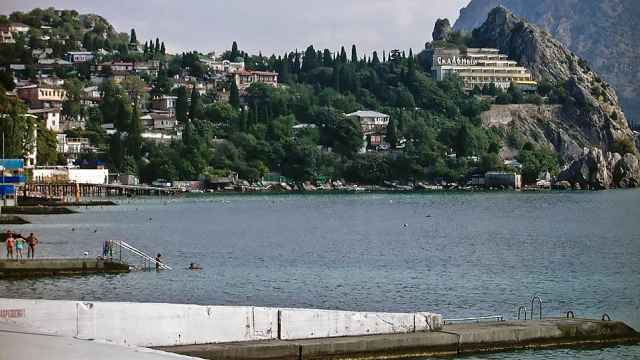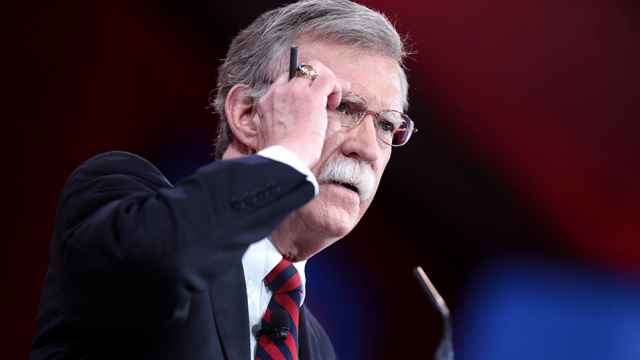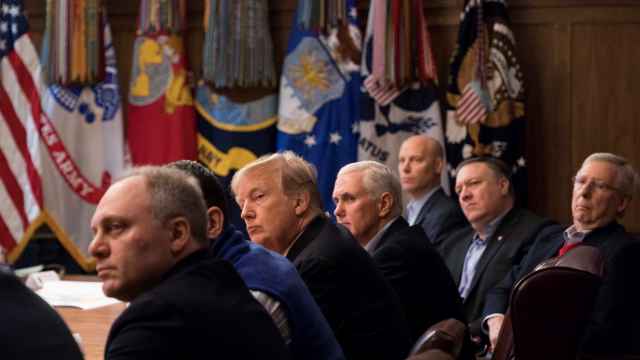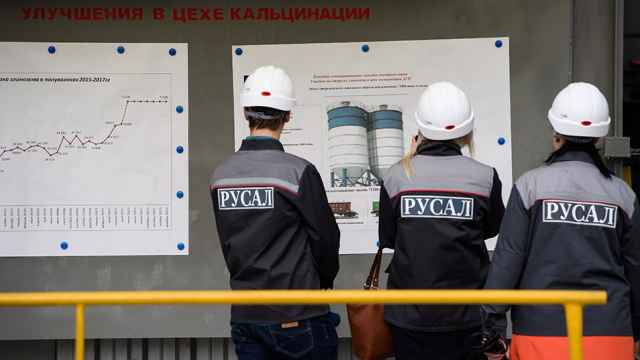To see how a protectionist trade war might backfire, look to Russia.
Five years into Vladimir Putin’s effort to protect Russian farmers from foreign competition and penalize the U.S. and Europe for sanctions imposed after his 2014 annexation of Crimea, the results are in: a sharp rise in prices, an extra $6.9 billion a year spent on food, and limited benefit in terms of increased production.
“The lesson from this sanctions and isolation experience for others is don’t do it,” said Elina Ribakova, deputy chief economist at the Institute of International Economics. “A large, complex emerging economy like Russia can still benefit from a lot of productivity spillovers and is better off being integrated in global markets.”
Putin’s strategy has become a textbook case of how trade barriers can ultimately backfire as debates intensify elsewhere about whether tariffs are a good tool to fix economic imbalances.
“Russia seems to be ahead of the curve with all the protectionist measures,” said Ribakova.
In the U.S., Trump promised to correct what he considered decades of failed policies that enabled China’s economic rise and allowed trade deficits with nations including Germany to balloon — both to the detriment of American manufacturers. Last year, he started putting tariffs on Chinese imports, spurring cycles of retaliation and threats of higher levies. The resulting uncertainty has inhibited investment, forcing the Federal Reserve to cut interest rates to cushion against a sharper slowdown.
In Russia, while farm production has grown since the Kremlin imposed the limits, some of the biggest winners were sectors not significantly affected by the restrictions, while others benefited from investments that predated them. In the hardest-hit areas, the limits boosted growth by only a tenth of a percentage point, according to ACRA, Russia’s local credit-rating agency. That wasn’t enough to offset the negative impact from the higher costs to consumers.
To be sure, Russia’s goal in imposing the so-called anti-sanctions wasn’t overt protectionism, but geopolitics. State television regularly showed officials bulldozing contraband produce from the U.S. and Europe.
But officials later admitted that protecting the domestic agricultural sector was a key goal of the measures. The Kremlin had for years been hoping to rebuild agricultural production that had collapsed along with the Soviet Union in the 1990s. The restrictions have been a boon to some producers in Russia.
“Our cheese sector was reborn thanks to the embargo,’’ said cheesemaker Oleg Sirota, adding that cheap government loans and subsidies were also a big help. “It’s like the gold rush in the wild West.’’
But for now, falling living standards are offsetting the modest gains in domestic production — ACRA estimates that the embargo knocked off 0.2 percentage points of GDP from 2014-2018.
“We switched to imported goods from other countries. This is exactly why we observe the price increase,” said Natalya Volchkova, professor at Moscow’s New Economic School. “It’s like consumers are paying more to increase production in sectors that have low productivity.”
Prices for goods impacted by the embargo like cheese and meat increased more than the average price increase for consumer goods, Volchkova said. That adds up to an extra 3,000 rubles ($46) a year per person, the equivalent of a 5% increase in food expenditure for those on low incomes. Her calculations exclude the effect of the sharp drop in the ruble in 2014, which further fueled inflation.
Total farm production has increased over the five years, but in some sanctioned areas, growth rates were actually higher before the restrictions were imposed, according to KPMG.
“The Russian state forced the population to pay more for food, often of lower quality due to limited competition,’’ KPMG’s head of agribusiness in Russia Vitaly Sheremet says.
Among the beneficiaries of the measures have been Russian trading partners not covered by the restrictions who’ve seen exports boom. Belarus, for example, has seen an explosion in reported production of everything from cheese to oysters.
While some imports have been substituted with goods from other countries, plenty of European food gets past the ban. “A lot of production from Moldova, Ukraine, Poland, for example, goes through Belarus.” Sheremet says. “It’s common knowledge that food from countries on Russia’s sanction list gets into Russia through these channels.”
So far, Russia’s anti-sanctions haven’t forced the EU and the U.S. to roll back their penalties and while the Kremlin isn’t backing down either, it’s not broadening its own restrictions.
“The proof is in the pudding,” Ribakova says. “You haven’t seen the Russian authorities using the sanctions any more or expanding them.”
A Message from The Moscow Times:
Dear readers,
We are facing unprecedented challenges. Russia's Prosecutor General's Office has designated The Moscow Times as an "undesirable" organization, criminalizing our work and putting our staff at risk of prosecution. This follows our earlier unjust labeling as a "foreign agent."
These actions are direct attempts to silence independent journalism in Russia. The authorities claim our work "discredits the decisions of the Russian leadership." We see things differently: we strive to provide accurate, unbiased reporting on Russia.
We, the journalists of The Moscow Times, refuse to be silenced. But to continue our work, we need your help.
Your support, no matter how small, makes a world of difference. If you can, please support us monthly starting from just $2. It's quick to set up, and every contribution makes a significant impact.
By supporting The Moscow Times, you're defending open, independent journalism in the face of repression. Thank you for standing with us.
Remind me later.


